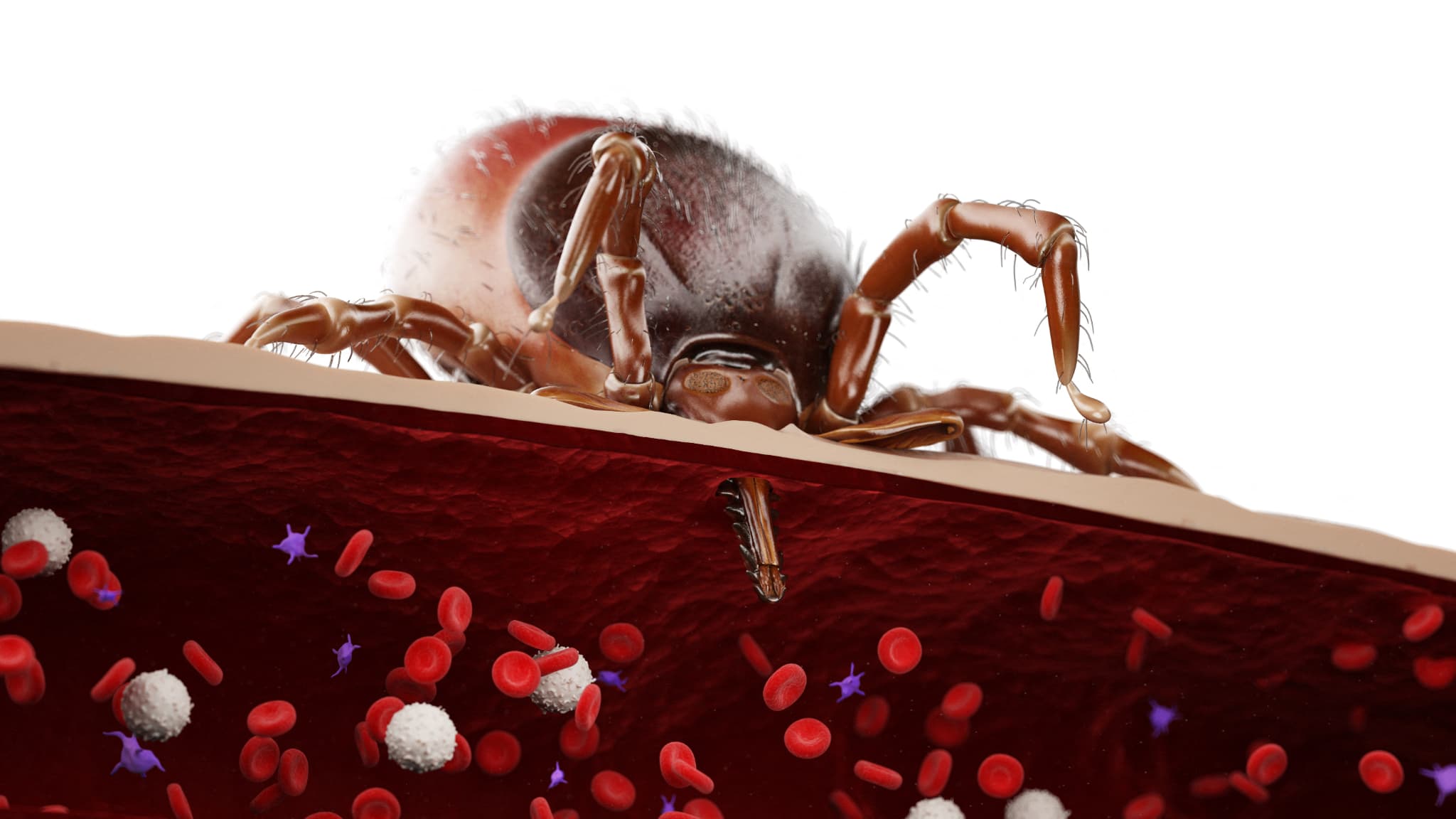Tick-borne encephalitis: what is this disease that is "causing growing concern in France"?

A new source of concern. Tick-borne encephalitis (commonly known as TBEV), one of the serious infections linked to the bite of the parasite, is causing "growing concern in France," according to the expert report from the French Agency for Food, Environmental and Occupational Health Safety (ANSES) .
Responsible for potentially serious neurological after-effects, the tick-borne encephalitis virus can also be transmitted through the consumption of milk or raw cheese from animals that are themselves sick.
The first outbreak of multiple foodborne illnesses was identified in Ain (Auvergne-Rhône-Alpes) in 2020. Since then, authorities and health professionals have been trying to inform and warn the public about the consequences of this disease. ANSES experts are also calling for increased collaboration between livestock farmers and scientists researching this phenomenon.
Before 2020, as ANSES points out, tick-borne encephalitis had been detected, marginally, in certain regions of eastern France (Alsace, Lorraine, Savoie, and Haute-Savoie). In these specific situations, the affected individuals had been bitten by the parasite. The individuals had visible traces of bites.
However, when the first cluster of 43 cases appeared in Ain, all the people were infected after consuming raw goat's milk cheese from the same farm. All suffered from flu-like symptoms or meningitis.
"Many questions remain about the mechanisms of virus circulation and transmission. To better identify high-risk areas and situations, research must be conducted on various aspects (...)", explains Elsa Quillery, co-coordinator of the expert report.
And for good reason: the virus now appears to be spreading throughout France (with the exception of the Mediterranean region). This is a geographical expansion, without, however, a significant increase in the number of cases.
Tick-borne encephalitis primarily affects people who come into daily contact with "domestic and wild sentinel animal species" such as cows, deer, and goats. This is obviously the case for livestock and dairy farmers.
Although tick-borne encephalitis is a worrying but "rather rare" disease in France, according to ANSES, its consequences for human health nevertheless worry the French medical profession.

The health of those infected can deteriorate very quickly after infection. The headaches, fever, and digestive problems of the initial phase can lead to serious neurological complications such as loss of balance, muscle weakness, confusion, and drowsiness.
"Among symptomatic people, 20 to 40% present neurological signs such as meningitis, which can lead to long-term after-effects and a loss of autonomy," explains Elsa Quillery in the report.
BFM TV





